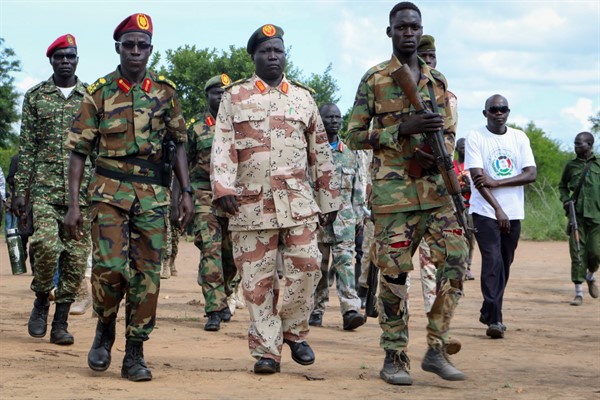Few nations have seen their dreams and hopes dashed as quickly and ruthlessly as South Sudan. A mere two years after thousands thronged the streets of the capital, Juba, to celebrate independence from Sudan’s autocratic rule, the country descended into a brutal civil war. The fallout between President Salva Kiir and Vice President-turned-rebel Riek Machar, and the subsequent fighting, exerted a terrible toll. Between 2013 and 2018, up to 400,000 people were killed and 4 million—a third of the country’s population—displaced, amid numerous reports of ethnic-based atrocities like rape and massacres.
The world’s youngest country is now approaching its 10-year anniversary, and while the war has quieted thanks to a fragile 2018 peace deal, the risk of a return to full-blown conflict is never far away. South Sudan still faces an insurgency in the south of the country and rampant localized violence elsewhere. Ethno-political tensions remain high and could be unleashed again by the next presidential election, which was originally scheduled for 2022 but is likely to be delayed. Moreover, amid the constant efforts to halt violence, avoid the further deterioration of a dire humanitarian situation and keep the sputtering peace deal on track, both external partners and many South Sudanese themselves seem to have lost sight of any vision for longer-term stability.
Maintaining the peace deal and getting the country past the presidential poll—which would likely pit Kiir against Machar, who has returned to the position of vice president under the terms of the 2018 agreement—are the most immediate hurdles. But any hope for stability demands a reset of South Sudan’s ill-suited, winner-take-all political system that fuels the ongoing tensions among elites.

